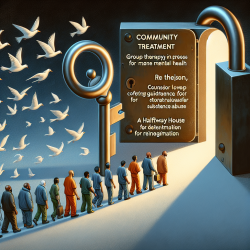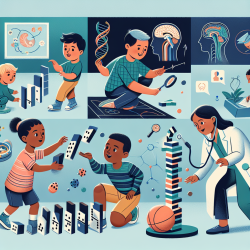Introduction
In recent years, the need for inclusive and affirming care for sexual and gender minorities (SGM) has gained significant attention. A systematic review titled "Affirming and Inclusive Care Training for Medical Students and Residents to Reduce Health Disparities Experienced by Sexual and Gender Minorities" by Cooper et al. (2023) highlights the importance of incorporating such training in medical education to address health disparities faced by SGM individuals.
The Need for Affirming and Inclusive Care
SGM populations often face higher health disparities compared to their heterosexual/cisgender counterparts. These disparities are linked to various factors, including discrimination, limited access to healthcare, and a lack of tailored medical education. To bridge this gap, medical students and residents must be equipped with the knowledge and skills to provide affirming and inclusive care.
Key Findings from the Systematic Review
- Most studies reviewed showed significant improvements in knowledge, attitudes, and skills among medical students and residents after receiving training on SGM health issues.
- Multimodal training approaches, such as didactic sessions, patient panels, and small group discussions, were found to be more effective in achieving positive outcomes.
- While knowledge gains were evident, changing attitudes and beliefs about SGM health required more interactive and longer-term interventions.
- Few studies evaluated the impact of training on actual patient outcomes, indicating a need for future research in this area.
Implementing Training in Medical Education
To improve care for SGM patients, medical educators should consider incorporating the following strategies into their curricula:
- Comprehensive Training Modules: Develop and integrate comprehensive modules that cover SGM health issues, cultural competency, and clinical skills.
- Interactive Learning: Utilize patient panels, role-playing, and standardized patient interactions to provide real-world experience.
- Longitudinal Curriculum: Implement longitudinal curricula that provide continuous exposure to SGM health topics throughout medical education.
- Faculty Development: Train faculty members to effectively teach SGM health topics and create a supportive learning environment.
Encouraging Further Research
While the systematic review provides valuable insights, there is still a need for more rigorous research to evaluate the long-term impact of affirming and inclusive care training on patient outcomes. Practitioners and educators are encouraged to contribute to this growing field by conducting studies that assess the effectiveness of different training approaches and their impact on reducing health disparities for SGM populations.
To read the original research paper, please follow this link: Affirming and Inclusive Care Training for Medical Students and Residents to Reduce Health Disparities Experienced by Sexual and Gender Minorities: A Systematic Review.










